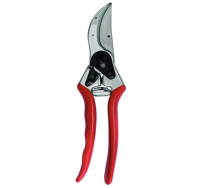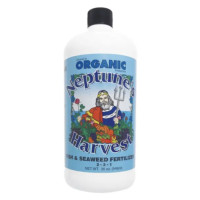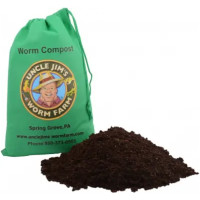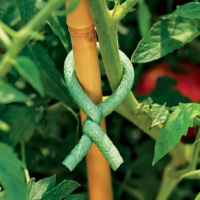
There are a host of elements that are essential for healthy garden crops, but the three that are most limited in our natural environment are Nitrogen, Phosphorus, and Potassium—commonly referred to by their chemical symbols N, P, and K.
Most gardeners know what aisle of the big box store to find bags of fertilizer, neatly containing roughly 10 percent of each of those critical elements, but few know how to create their very own organic fertilizer at home. The following six garden amendments can be made with simple equipment by almost anyone, and they’ll allow you to close the loop on your vegetable garden and put many items that you might currently consider waste products to good use.
Animal Manure
The most common homemade organic fertilizer is animal manure. Manure from chickens, cows, and horses is packed with nitrogen, phosphorus, and potassium, but their ammonia levels can be so high that they actually “burn” your plants.
In order to avoid burning your plants or potentially spreading animal pathogens in your garden, you should first compost your manure in a hot compost pile and allow it to age before spreading it in your garden beds. Rabbit manure is relatively low in ammonia so it can be applied directly to plants without burning them.
Bone Meal
Bone meal is another great garden amendment that many people are familiar with, but few know how to make it at home. Bone meal contains a lot of phosphorus, calcium, and also some nitrogen.
Making it at home is as simple as pressure cooking bones from any wild game or farm-raised animals until you can completely remove any meat or gristle. You then dry the bones completely and pound them into a meal. This is a great thing to do with spent bones after making broth, just make sure to rinse off any salt or oil that may have collected on them during the cooking process.
Blood Meal
Blood meal is a high-quality amendment made from dehydrated animal blood. It contains some phosphorus and potassium, but its main strength is nitrogen.
To make it you need to collect a decent amount of animal blood while butchering or slaughtering animals and then cook it down until it has the consistency of a sludge. Then you can pour it onto sheet pans or dehydrator trays and dry it down until it is desiccated and cracking at which point you can crush it into a powder and apply it to your garden beds.
Fermented Plant Juice
For any vegans who are reading an article on TheMeatEater.com and made it through those last two paragraphs, I recommend fermented plant juice. By fermenting green weeds and spent garden plants, you can extract many valuable minerals and nutrients in a homemade quick-release fertilizer.
This process uses the natural lactobacillus bacteria present on plants combined with a ratio of one part plant material to ½ part sugar or honey and enough water to cover them. Allow the mixture to ferment for one week, and then you can dilute it and apply it directly to your crops.
Fish Emulsion
Okay, back to the carnage.
Fish emulsion is an excellent broad-spectrum fertilizer and a great way to use up any scraps of fish that didn’t make it to your dinner plate. To make it you simply layer fish scraps and brown garden waste like dead leaves or straw in a 5-gallon bucket and then cover them with water. Stir this every few days for three weeks, and the liquid sludge at the bottom of the bucket will be ready to dilute and apply to your garden.
You won’t score any points with your neighbors, but they’ll forgive you when you share some huge tomatoes with them later in the season. Keep in mind that any heavy metals or toxins that are present in your fishery will make it through to your garden beds so only use scraps from fish that you would be comfortable eating yourself.
Human Urine
I said at the beginning of the article that few gardeners know how to make organic fertilizer at home, but that’s not exactly true. Most of us do it every day and have been our entire lives. Human urine is an excellent fertilizer and many studies around the world are finding great results in trials of human urine vs expensive conventional fertilizers.
If you’re a bit squeamish about this, you can indirectly fertilize your garden with urine by adding it to your compost pile and allowing it to aid in the decomposition process and boost nutrient levels. For more information on the efficacy and health implications, you can read a publicly available study by the Stockholm Environment Institute on the subject.
It’s no coincidence that the majority of the fertilizers mentioned above are derived from animals. Animals and plants are inextricably dependent on one another to thrive and linked in a complementary cycle of giving and taking. Our vegetable gardens bring us close to the true source of our food and getting to know our vegetable’s food is one step closer.







